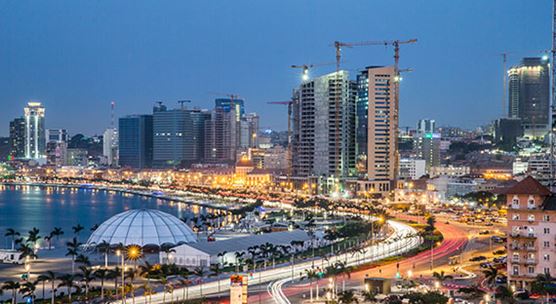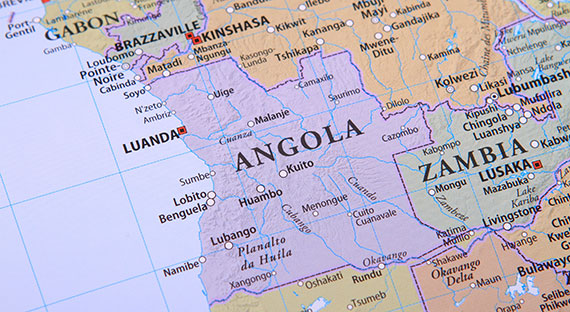
Luanda Bay in the capital of Angola. The country has been badly affected by volatile oil prices (photo: Ademar Rangal)
Angola: Promoting Sustained, Inclusive Growth and Reducing Oil Dependency
December 19, 2019
The IMF has approved the second review of its largest program in sub-Saharan Africa. It has given the green light to continued financial support to Angola under the Extended Fund Facility. This will mean about $1.5 billion disbursed, of a planned total of $3.7 billion.
In an interview with IMF Country Focus, the IMF’s mission chief for Angola, Mario de Zamaróczy, explains what the government hopes to achieve with the program.
Related Links
What are the major characteristics of the program?
The program aims at stabilizing the Angolan economy, which has been adversely affected by volatile oil prices and severe macroeconomic imbalances. It helps prepare the oil-rich, southwest African country for sustained and inclusive growth. Under the program, Angola has started reducing its excessive dependency on oil and has begun diversifying its economy. Steps to achieve this include addressing fiscal imbalances, and in particular, increasing the revenue from non-oil sources, as well as liberalizing the exchange rate regime, and managing debt carefully.

The program was approved a year ago. What progress has Angola made so far?
The program builds closely on the government's own Development Plan for 2018–22. We are particularly pleased that the government has thrown its full weight behind the program, which involves making savings early on to reach an overall budget surplus, and so reduce the need for additional debt. An important milestone was reached earlier this year, with the introduction of a value-added tax on October 1. Monetary policy has been tightened to support exchange rate liberalization. A host of legislative and structural measures have also been implemented to promote private investment and improve infrastructure.
Fast Facts
- Real GDP growth (2019 projected): -1.1%
- Inflation rate (2019 projected): -17.2%
- Population: 30 million
- Date of IMF membership: September 19, 1989
The government has been emphasizing the fight against corruption. Could you elaborate?
As soon as the government won the elections in September 2017, it emphasized that fighting corruption would be a cornerstone of its policies. The government published an Anti-Corruption Plan and strengthened the various bodies in charge of fighting corruption. This fight has already produced results, for instance, at the Sovereign Wealth Fund, where the government was able to regain control of a large part of the Fund’s assets. Also, with IMF technical assistance, a new anti-money laundering and financing of terrorism law is close to being promulgated. The judicial system has already convicted several senior officials of embezzlement.
What are the challenges for Angola going forward?
Despite notable progress, there are major challenges ahead. The stabilization of the economy needs to be pursued relentlessly. The government will need to find ways to soften the impact of the transition on the most vulnerable. Other challenges include reducing debt and creating a business-friendly environment, which encourages private investment, one of the future engines of growth.







